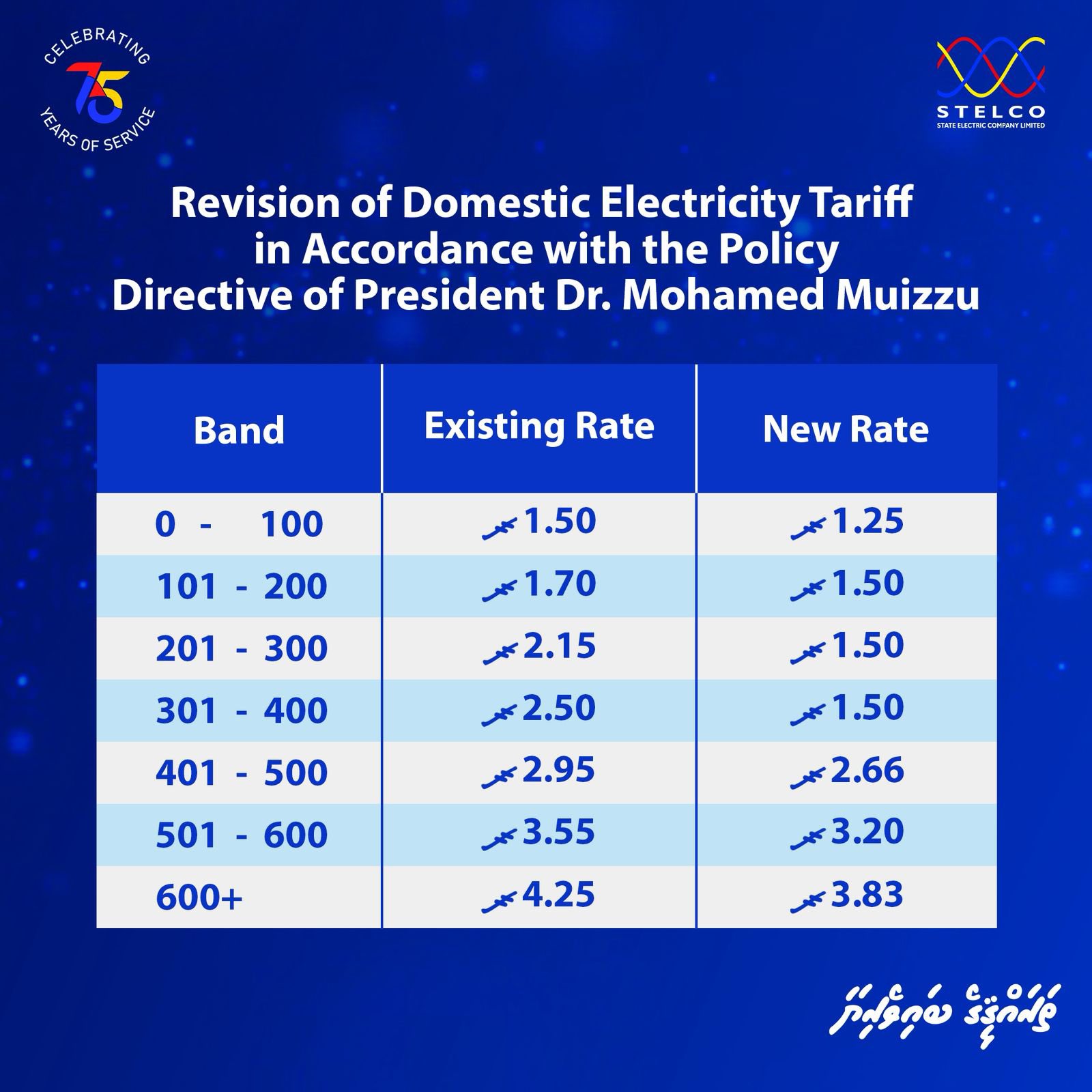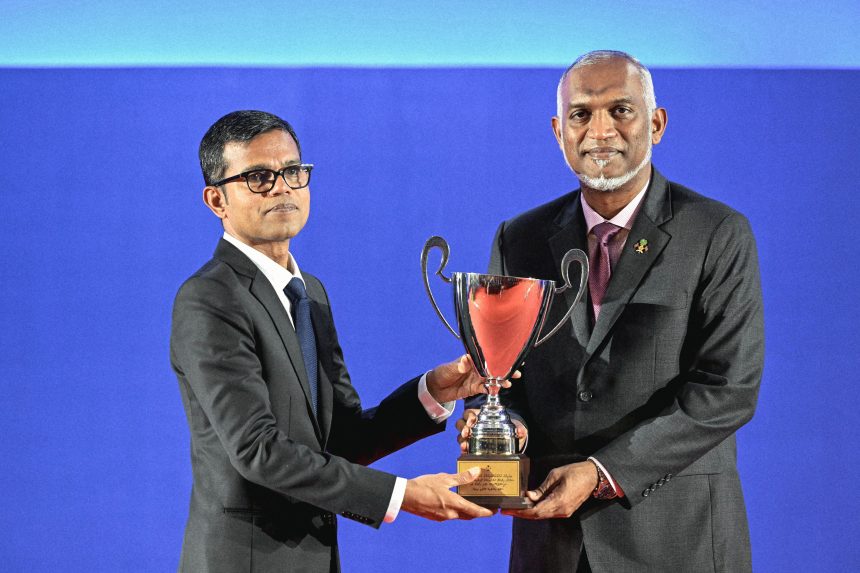In a proactive move, the State Electric Company Limited (STELCO) has applied reduced electricity tariffs to May’s billing cycle, providing immediate financial relief to households. This action precedes the official implementation date of June 1, as announced by President Dr. Mohamed Muizzu.
President Muizzu’s directive, issued on May 30, instructed relevant authorities to reduce domestic electricity tariff rates effective June 1, aiming to alleviate the financial burden on citizens amid rising utility costs . However, STELCO’s decision to incorporate the new rates into May’s bills demonstrates a commitment to swift action and responsiveness to public needs.

Under the revised tariff structure, significant reductions have been made across various consumption bands. For instance, households consuming up to 100 units will now pay MVR 1.25 per unit, down from MVR 1.50. Similarly, those using between 101 and 200 units will see rates decrease from MVR 1.70 to MVR 1.50 per unit. Higher consumption brackets have also benefited from notable cuts, with rates for usage above 600 units dropping from MVR 4.25 to MVR 3.83 per unit .
STELCO’s Managing Director, Hussain Fahmy, praised the President’s decision, describing it as a bold and historic move that previous administrations had not attempted. He expressed sincere appreciation for the President’s efforts to ease the long-standing financial strain caused by electricity costs .
This initiative follows a series of government measures aimed at reducing utility costs for citizens. During Ramadan, discounts and waivers were applied to electricity bills, and penalties for unpaid electricity and water bills were canceled for households. Additionally, in April 2025, further relief was provided to help households cope with increased electricity consumption due to a heatwave .
Looking ahead, President Muizzu has emphasized the importance of sustainable implementation of the reduced tariffs. The government plans to invest significantly in renewable energy sources, aiming to transition 30% of the country’s energy consumption to renewables by 2028. This strategy is expected to enhance the efficiency of electricity providers and offset the impact of reduced tariffs .
As the new tariffs take effect, households can anticipate more manageable electricity bills, reflecting the government’s commitment to improving the quality of life for its citizens through sustainable and thoughtful policy decisions.




